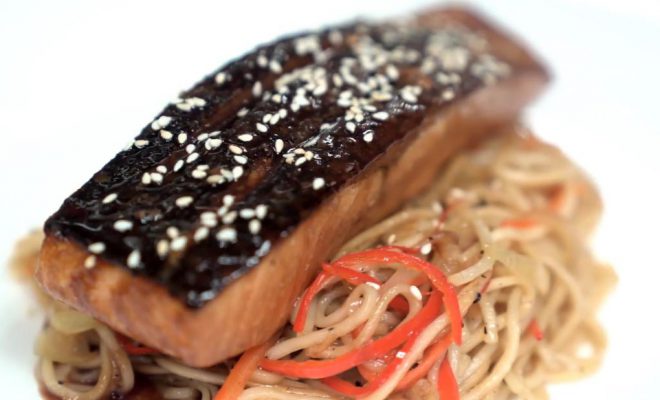Biotechnology degrees, what you can do with them?

Biotechnology harks back to the early days of human civilisation, when people discovered the beneficial properties of fermentation, utilised in bread-making, beer brewing, wine production (Buchholz & Collins, 2013) and even conversion of milk into cheeses and yoghurt. In the 19th century, zymotechnology was the collective term for a host of techniques and technologies used primarily for brewing beer (Bud,1992)! It was in the early twentieth century, that the term Biotechnology appeared in the scientific literature of American, British and German scientists, replacing zymotechnology as the discipline for obtaining new materials from the fermentation or conversion of agricultural produce (Bud, 1992).
Fast forward to today, Biotechnology has rapidly evolved into a broad discipline that harnesses the functions of microbes to produce useful biomolecules in medicine, as well as utilising molecular biology and genetic engineering to modify plants and animals to improve agricultural productions. Hence, biotechnology is broadly classified into biologics/therapeutics production and agricultural biotechnology, which is also abbreviated as agro-biotechnology.
The major biopharmaceutical companies with manufacturing facilities based in Singapore, such as GSK, Lonza, AMGEN and ABBVIE, all employ biotechnology graduates to staff their factories which function 24/7 in a continuous line production. These factories produce both biologics and chemically synthesised drugs. Biologics refer to large and complex biomolecules that are produced in cell cultures or bacterial systems, and these biomolecules have therapeutic effects against their respective target human diseases (Amgen, 2017; Roger, 2006; Gottlieb, 2008). These therapeutic biomolecules include hormones, monoclonal antibodies and even engineered T-cells, which are far more complex and 200-1000 times larger than the chemical synthesised drugs, which are termed small molecule drugs (Roger, 2006; Gottlieb, 2008).
Other than being involved in the monitoring of the biologics commercial production, the biotechnology staff can also be deployed in the research and development laboratories. In the research and development departments, the staff work on developing new biologics through genetic and molecular manipulation of microorganisms and cells as well as enhancing the medical therapeutic properties of existing therapeutics. Additionally, the quality assurance and quality control departments deploy biotechnology staff to screen batches of biologics produced, to ensure that the biologics conform to reference standards of purity, quality and efficacy.
For individuals who prefer to engage customers rather than doing factory-based work, the biopharmaceutical companies maintain a legion of biotechnology graduates as sales, marketing and liaison staff. These personnel are responsible for communicating product specifications and promoting products to customers, as well as maintaining collaborative links with research institutes and key opinion leaders.
In the field of agro-biotechnology, the focus is on the modification of agricultural produce and organisms to improve on produce quality and quantity. The largest agro-biotechnology firm Monsanto maintains a sales representative office in Singapore, to market their products which include seeds, agricultural biologicals and crop protection products (Monsanto, 2020). The seeds had been genetically modified or selectively bred to produce crops that are “more tolerant to adverse weather conditions, strengthen plant resistance to insects, and enable more effective weed control and farming practices that are more sustainable and better for the environment” (Monsanto, 2020).
Another example of an agro-biotechnology company is AquaBounty Technologies which is famous for breeding fast-growing salmon through biotechnological means. The growth hormone gene from the Chinook salmon was integrated into the Atlantic salmon, to create a transgenic Atlantic salmon which grows twice as fast and consumes 25% less feed than the wildtype (AquaBounty, 2020). The transgenic Atlantic salmon are bred and farmed on land, in facilities called recirculating aquaculture systems (RAS) (AquaBounty, 2020). The RAS was developed to overcome the issues of farming in sea cages: “violent storms, predators, harmful algal blooms, jellyfish attacks, fish escapes, and the transmission of pathogens and parasites from wild fish populations residing near the cages.” (AquaBounty, 2020).
The Marine Aquaculture Centre (MAC) and the Aquaculture Innovation Centre (AIC) are the two Singapore agencies, specialised in the R&D of innovative aquaculture practices and breeding of aquaculture crop species. Located on St. John’s Island, MAC is an institute within the Singapore Food Agency (Marine Aquaculture Centre, 2020), while the AIC is a centre of excellence located at Temasek Polytechnic, formed by a consortium comprising Temasek Polytechnic, Agency for Science, Technology and Research (A*STAR), James Cook University, Nanyang Polytechnic, Nanyang Technological University, National University of Singapore, Ngee Ann Polytechnic, Republic Polytechnic and the Singapore Food Agency (SFA) (Aquaculture Innovation Centre, 2020).
In Singapore, the major agro-biotechnology firms are farms which employ variations of hydroponics and RAS aquaculture to intensively cultivate vegetables and fish respectively, on limited land parcels which span one to two acres or less. Examples of such firms are Oh Farms (Oh Farms, 2020), Kok Fah (Kok Fah Farms, 2020) and Fin by BOAT (Fin by BOAT, 2020).
Currently, local farms can only supply 10% of Singapore’s local demand, and with Singapore Food Agency’s objective to achieve 30% self-sufficiency in meeting local agricultural produce by 2030 (Singapore Food Agency, 2020), the agro-biotechnology industry is primed to require more biotechnology graduates to drive high-tech farm productions.
Hence, in the agro-biotechnology industry, Biotechnology graduates can be deployed in the R&D of transgenic organisms and selective breeding to boost production levels as well as manning high-tech RAS and hydroponic farms to meet demands for local agricultural produce. These two functions are essential for maintaining Singapore’s self-sufficiency in food production and food security.
In summary, Biotechnology graduates are required to drive Singapore’s economy, by running factories producing medicine and biologics to breeding and farming commercial crops to sustain Singapore’s growing demand for food. Hence, a Biotechnology degree is a valuable qualification, as it equips the graduate with the requisite skills for the biopharmaceutical and agro-biotechnology industries.










